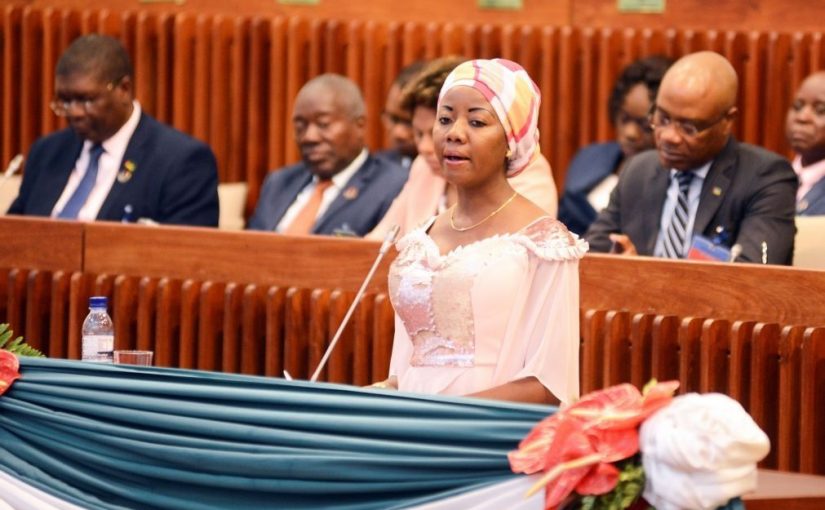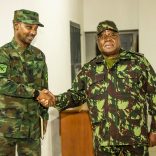Mozambique: Renamo denies report that Momade has been given a sinecure
Mozambique: Renamo ‘working’ to resolve internal splits – parliamentary leader

File photo: Lusa
The parliamentary leader of Mozambique’s main opposition party, Renamo, said on Monday that it is “working” to resolve internal dissidence, in an allusion to a group of members of its armed wing who are calling for the resignation of the party leader.
“We’re working”, Ivone Soares told Lusa, pointing out that Renamo has not expelled the generals in the self-styled “military junta” that has contested the leadership of Ossufo Momade. “The guerrillas themselves did not say they are no longer of the party.”
At issue are the demands of a group of guerrillas led by Mariano Nhongo, a Renamo lieutenant-general, that describes itself as a military structure of the party “dug in in the bush”.
The group takes the view that the peace agreement signed between Mozambique’s president, Filipe Nyusi, and Momade, arguing that the latter does not represent the party’s military wing.
According to Soares, despite the disputes, one cannot speak of the party being split, given that differences of opinion are normal in a group that wants to be democratic.
“Internally it is healthy to discuss different opinions, which is why we are the party that brought democracy,” she said. “And we have to be ready for this democracy. We cannot be the ones who sabotage the democracy that we have implanted.”
In his first comment on the dissidents, on 6 August, the day that the Peace and National Reconciliation Agreement was signed with Nyusi, Momade dismissed them as a group of “undisciplined deserters”. But earlier this month his tone changed, describing Nhongo as “a Mozambican citizen and a member of Renamo” and calling on him to “return to reason.”
Although the hostilities between government and Renamo ceased in December 2016 and peace was formally established under agreements signed in August, the group led by Nhongo remains “dug in in the bush”.
Mozambique’s government and Renamo first signed a General Peace Agreement in 1992, bringing the 16-year civil war to an end. But that agreement was violated between 2013 and 2014 by armed clashes between the two sides, due to disputes relating to the general elections.
In 2014, they signed another agreement to cease military hostilities, which was also violated until the declaration of an indefinite truce in 2016 – still with no formal agreement until this year.












Leave a Reply
Be the First to Comment!
You must be logged in to post a comment.
You must be logged in to post a comment.